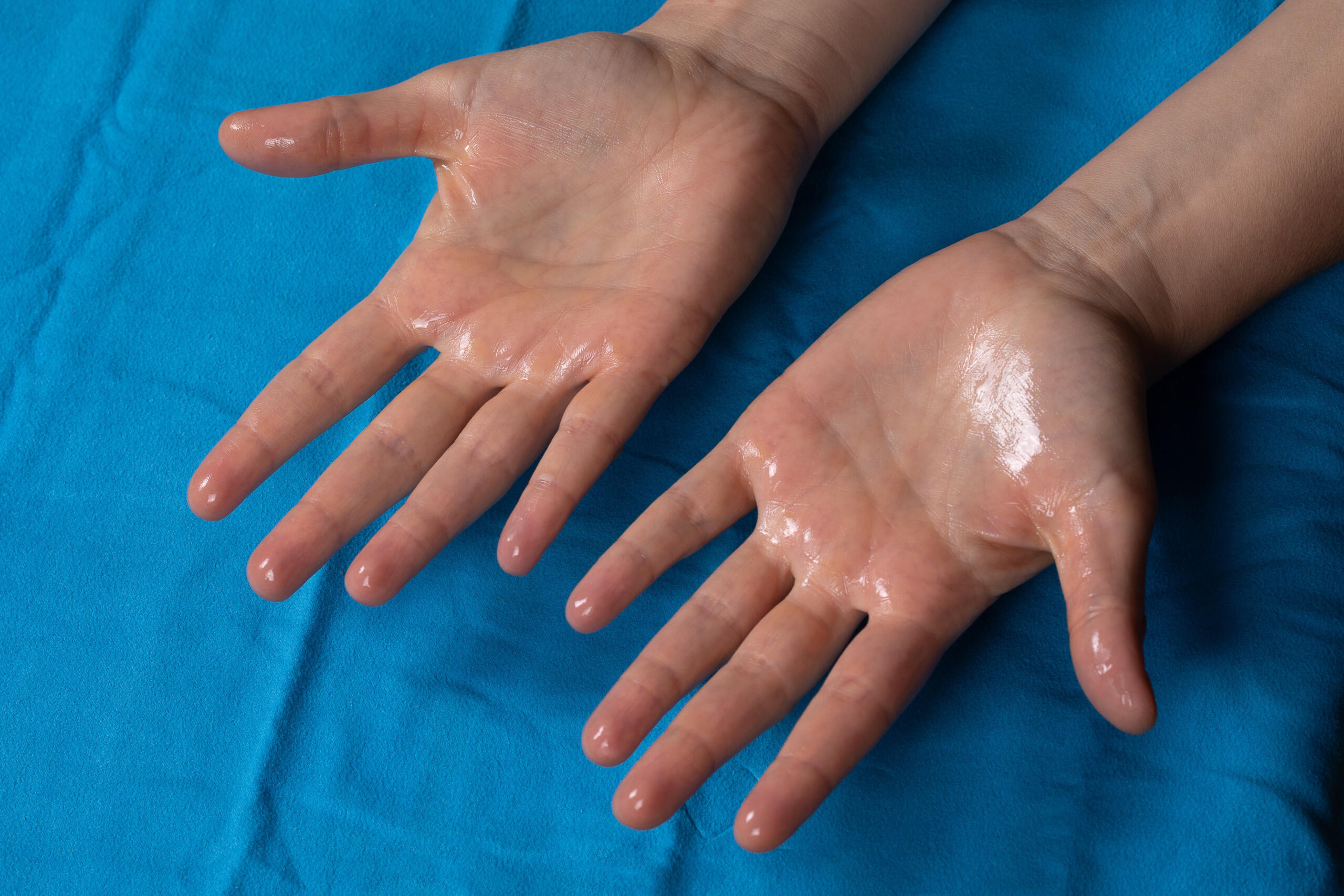Everyone sweats – but for some people, the sweating isn’t so simple. For nearly 8 million Americans, sweating is actually a serious problem, one that’s known as hyperhidrosis. This unusual yet quite common health issue results in excessive sweating, and it can appear on the feet, hands, face, and armpits or anywhere else on the body. While sweating isn’t usually something to worry about, for those living with hyperhidrosis it’s an everyday concern. Do you know what hyperhidrosis looks and feels like? Search online to learn more about hyperhidrosis.
Hyperhidrosis isn’t life-threatening, but it is uncomfortable. And its effects can result in embarrassment as well as psychological trauma. If you’re sweating more than usual, you might want to look into this condition. You can search online to learn more about the signs, symptoms, and treatments for hyperhidrosis.
The Causes of Hyperhidrosis
Hyperhidrosis is linked to your body’s normal sweating system. When your body needs to cool itself off, your nervous system triggers the sweat glands. Of course, sweating can happen when you aren’t hot too – for example, when you’re nervous or anxious.
When you have hyperhidrosis, however, your nervous system becomes overactive. Specifically, the nerves that are supposed to trigger your sweat glands are overactive, causing you to sweat even if you aren’t being physically active or increasing your body temperature. And if you’re stressed out or nervous, the sweating can become even worse.
There’s no known medical cause behind hyperhidrosis. It’s thought to possibly be hereditary, because family members can share this condition. Sometimes, hyperhidrosis can accompany another health issue, like diabetes, menopause, or low blood sugar.
When hyperhidrosis occurs, it can appear in a number of different areas of the body. If your excessive sweating is localized – or it happens in certain areas only, like the palms or feet – it’s called focal hyperhidrosis. When you’re experiencing excessive sweating all over your body, it’s called generalized hyperhidrosis.
Hyperhidrosis is also categorized in two more ways. Doctors can categorize it based on the underlying cause. Primary idiopathic hyperhidrosis is the name for instances with no known cause; typically, this kind is localized. Secondary hyperhidrosis is the name for cases that are caused by another underlying medical condition.
Regardless of what kind of hyperhidrosis you might be experiencing, it’s important to seek a doctor’s help. Search online to find doctors who can diagnose and treat this condition.
Signs and Symptoms of Hyperhidrosis
How do you know if you have hyperhidrosis? You’ll want to look for certain signs and symptoms.
Hyperhidrosis isn’t your average amount of sweat. You’ll experience more significant and potentially severe sweating, including symptoms like:
- Visible signs of sweat, like beads of sweat on your skin or sweat-soaked clothing.
- Sweat when you aren’t exerting yourself or feeling warm.
- Sweating that interferes with your everyday activities, like sweating making it difficult to grasp items.
- Soft, white, or peeling skin.
- Skin that stays wet with sweat for long periods of time.
- Frequent skin infections, like athlete’s foot and jock itch.
If you’re living with symptoms like these, make sure to talk with a doctor. Your first step in getting treatment is to get a diagnosis – so search online to find doctors in your area.
How Hyperhidrosis is Treated
Once you’ve seen a doctor and gotten an official diagnosis, treatment is the next step. There are a number of ways hyperhidrosis can be treated. However, treatment will depend on your unique situation and your overall health.
For the most part, many people can achieve results and an improved quality of life once they receive treatment for hyperhidrosis. But treatments work differently for different individuals. Your doctor may recommend or prescribe any of the following treatments for hyperhidrosis:
- Over-the-counter antiperspirants that contain a low level of metal salt.
- Prescription-strength antiperspirants/
- Iontophoresis, a device that uses ionized tap water and electricity.
- Oral medications.
- Botox (or botulinum toxin-A).
- MiraDry, a microwave energy treatment.
- Laser therapy.
- Surgery.
If you’re living with hyperhidrosis, treatments like these can take time to work. And you may need to try a few treatments before you settle on one that provides the results and the positive effects you’re hoping for. Make sure to talk with your doctor about all your options.
When hyperhidrosis is caused by an underlying condition, sometimes treating that condition can solve the problem of excessive sweating. For example, getting diabetes under control or losing weight if you’re obese may be able to have a positive effect on your hyperhidrosis. You can talk with your doctor about unique or specific treatment options for your underlying conditions, as treatments may differ from the most common hyperhidrosis treatments.
